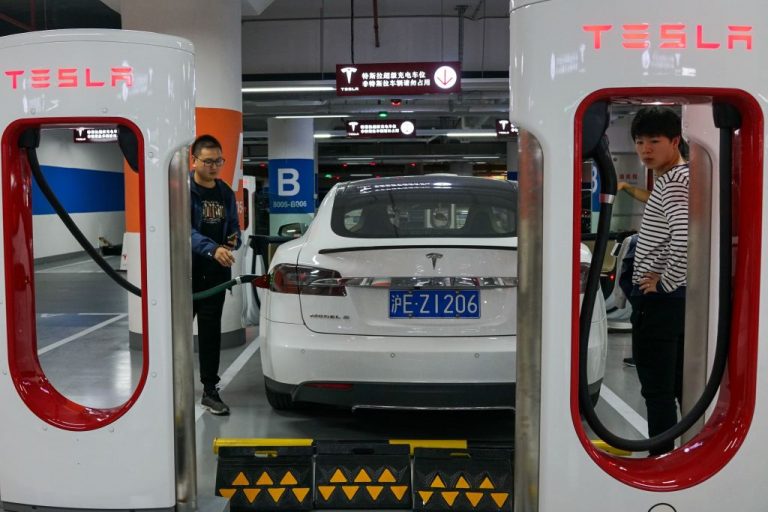As China continues its crushing lockdown of Shanghai, an increasing number of businesses are reporting huge dips in profits as authorities scramble to uphold the country’s unbending “zero-COVID” policies.
Most recently, electric vehicle (EV) maker Tesla revealed that its China sales had decreased by a staggering 98 percent, according to data from the China Passenger Car Association (CPCA).
The CPCA reported that Tesla China produced 10,757 vehicles in April, compared to 55,462 from the previous month. The EV giant also did not export any Shanghai-made cars for April and reported an 81 percent decrease in production resulting from the shutdown. According to the company, its Shanghai Giga factory was open for only 11 days in March.
MORE ON CHINA’S ECONOMY:
- COVID Lockdowns Cut 98% of Tesla’s April China Sales, Production Also Hard-Hit
- US Firms Report Huge Dip in China Sales as Beijing Continues ‘Zero-COVID’ Measures
- China Points to Regulatory Easing After Tech Meeting, But Analysts Warn it Won’t Be That Simple
- Here’s Just How Badly ‘Zero-COVID’ Has Damaged China’s Economy
Closed loop in place until June 13
On May 20, Tesla unveiled plans to keep its Shanghai factory employees in a “closed loop system” until mid-June in order to resume production and get the company’s China assembly lines back on track. Giga Shanghai employees will move into a dormitory, keeping them within a “closed sanitized loop,” sources familiar with the company’s inner workings told Bloomberg.
Workers at Tesla’s Shanghai Giga factory have been sleeping inside the factory since the facility restarted production after authorities loosened certain restrictions on May 16.
Success
You are now signed up for our newsletter
Success
Check your email to complete sign up
Tesla employees have been working single 12-hour shifts, six days a week, according to Bloomberg. While the factory’s current estimated daily output is about 1,200 cars per day at its current production rate, Tesla China hopes to increase the factory’s output to 2,600 per day by adding a second shift.
The factory is currently running at about 45 percent capacity, a local government official said, adding that auto-part suppliers in the surrounding area were also operating at a similar level.
Tesla executives are now negotiating with Shanghai authorities over accommodation for workers on the existing and planned shifts, according to an internal memo. The employees could be housed in temporary dorms or vacant COVID quarantine centers, one of the sources added.
The company had hoped that most of its roughly 8,000 factory workers could be driven from their own homes on door-to-door shuttles each day, but community-level officials vetoed the idea, stressing that if people left their apartments, they wouldn’t be allowed back under the restriction measures, and would risk being infected while outside of the closed loop.
What are closed loops?
Closed loops, or “factory bubbles,” were first introduced during the Beijing Olympics in February as a way of keeping athletes and support staff separate from the wider population. The arrangements typically require workers to only go from on-site accommodation to their workplace and back, in addition to undergoing regular nucleic acid testing for COVID-19.
They’ve been used widely in Shanghai, enabling some manufacturers to gradually resume production despite the ongoing virus restrictions. Shanghai is China’s largest metropolis, home to 26 million residents, and is widely regarded as the financial and commercial hub of the country.
At least 31 other cities across China also remain under some degree of lockdown, and both domestic and international retailers have reported a decrease in online sales as well as in-person purchases.
The lockdowns have resulted in massive supply chain disruptions and cut consumer spending by nearly 8 percent. Analysts are now warning that if the lockdowns continue for much longer, the world’s second largest economy is expected to see a decrease in GDP growth from 7.8 percent down to 4.8 percent for the remainder of the year.














